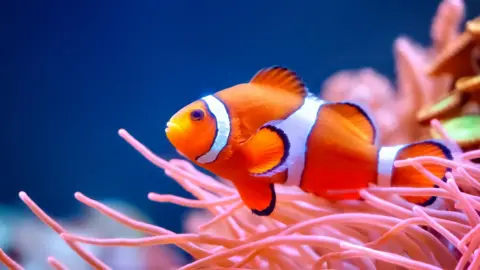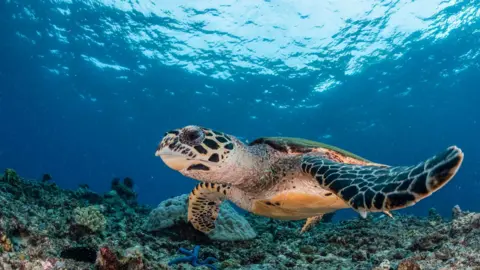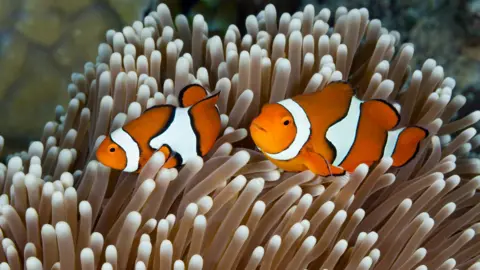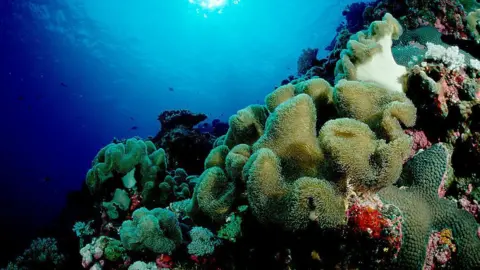'Shrinking Nemo': Smaller clownfish sound alarm on ocean heat
 Getty Images
Getty ImagesFish similar to those made famous by the movie Finding Nemo are shrinking to cope with marine heatwaves, a study has found.
The research recorded clownfish living on coral reefs slimmed down drastically when ocean temperatures rocketed in 2023.
Scientists say the discovery was a big surprise and could help explain the rapidly declining size of other fish in the world's oceans.
A growing body of evidence suggests animals are shape shifting to cope with climate change, including birds, lizards and insects.
 Getty Images
Getty Images"Nemos can shrink, and they do it to survive these heat stress events," said Dr Theresa Rueger, senior lecturer in Tropical Marine Sciences at Newcastle University.
The researchers studied pairs of clownfish living in reefs off Kimbe Bay in Papua New Guinea, a hot spot of marine biodiversity
The wild clownfish are almost identical to the ones depicted in the movie Finding Nemo, in which a timid clownfish living off the Great Barrier Reef goes in search of his son.
The scientific study took place in the summer of 2023, when temperatures shot up in the oceans, leading to large swathes of coral turning white.
The scientists took multiple measurements of individual clownfish coping with the heat.
They found the tiny fish didn't just lose weight but got shorter by several millimetres. And it wasn't a one-off - 75% of fish shrunk at least once during the heatwave.
 Getty Images
Getty ImagesDr Rueger explained: "It's not just them going on a diet and losing lots of weight, but they're actively changing their size and making themselves into a smaller individual that needs less food and is more efficient with oxygen."
The fish may be absorbing fat and bone, as has been seen in other animals, such as marine iguanas, although this needs to be confirmed through laboratory studies.
Dr Rueger joked that a little bit of movie rewriting might be necessary, with a new chapter ahead for Nemo.
"The movie told a really good story, but the next chapter of the story surely is, how does Nemo deal with ongoing environmental change?" she told BBC News.
 Getty Images
Getty ImagesGlobal warming is a big challenge for warm-blooded animals, which must maintain a constant body temperature to prevent their bodies from overheating.
Animals are responding in various ways: moving to cooler areas or higher ground, changing the timing of key life events such as breeding and migration, or switching their body size.
The research is published in the journal, Science Advances.
Follow Helen on X and on Bluesky.
